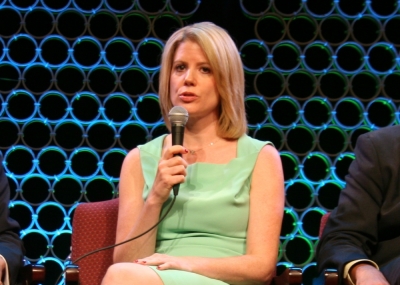The Kavanaugh Effect: Coming to Terms With Rape Culture

USA Today columnist Kirsten Powers published a powerful article titled "I was sexually assaulted and thought it was my fault. It's past time for a 1980s reckoning." The article begins as follows:
"When I was 15 years old, I passed out at a party after being fed all sorts of alcoholic concoctions by older boys I knew and idolized, but who in hindsight were eager to get me drunk.
"I awoke with a popular senior basketball player on top of me, and my shirt off. Dizzy and confused, I could barely remember anything about the night before. I asked what had happened and the boy told me we had just snuggled, but he couldn't explain why my shirt was off."
Powers then recounts the horror of learning a few days later that this same basketball player was boasting of having sexually assaulted her while she was passed out. She never told anyone, worried of angering and disappointing her parents, terrified that she would gain the reputation at her Catholic high school of being a slut.
I saw Powers on CNN (where she is a regular contributor) and she discussed the backdrop that prompted her to write the article. Last week, she was discussing Ford's allegations with her fiancee and she made a somewhat dismissive comment about Ford's description of the event as sexual assault. After all, she observed, this had happened to her: she then went on to describe this event to her fiancee. It was the first time she's shared the event with anyone since high school. As she told her fiancee about her own experience, the look of horror that crossed his face made her realize the reality of the sexual assault she had suffered:
"While I knew something terrible had happened, I didn't think I had been sexually assaulted. In the early 1980s, we didn't possess the vocabulary to make such declarations. I thought I had done something stupid and paid a price for it.
"I thought it was my fault."
The fact is that sexual assault and date rape were punchlines in the 1980s. Consider the storyline in the 1984 teen film Sixteen Candles in which the hunky hero Jake decides to get rid of his inebriated girlfriend Caroline by setting her up with the Geek. Note how Jake encourages the impending (and mercifully off-screen) sexual assault:
It's important to keep in mind that Jake is not a villain in the movie. The film ends with Jake and our heroine Sam (Molly Ringwald) sharing a kiss on her sixteenth birthday. Consequently, we are encouraged to view his previous girlfriend, Caroline, as nothing more than a drunken ragdoll that the Geek can grope with impunity as a punchline.
I remember seeing Sixteen Candles back in the 1980s in mixed company. None of us (boys and girls) thought there was anything scandalous or shocking about the film's nonchalant attitude toward sexual assault. (Nor, for that matter, were we offended by the film's sickening racism on display in the character of an Asian exchange student named "Long Duk Dong.") As Powers observes, "In the early 1980s, we didn't possess the vocabulary to make such declarations."
Powers is correct. In the 1980s we lacked the vocabulary to make such declarations. But the sobering fact is that we're only now beginning to acquire it. Kirsten Powers is a very intelligent, savvy, and self-possessed commentator. If she only came to label properly her own thirty-five-year-old sexual assault within the last week, I suspect many of us have a ways to go in identifying and calling out rape culture.



























